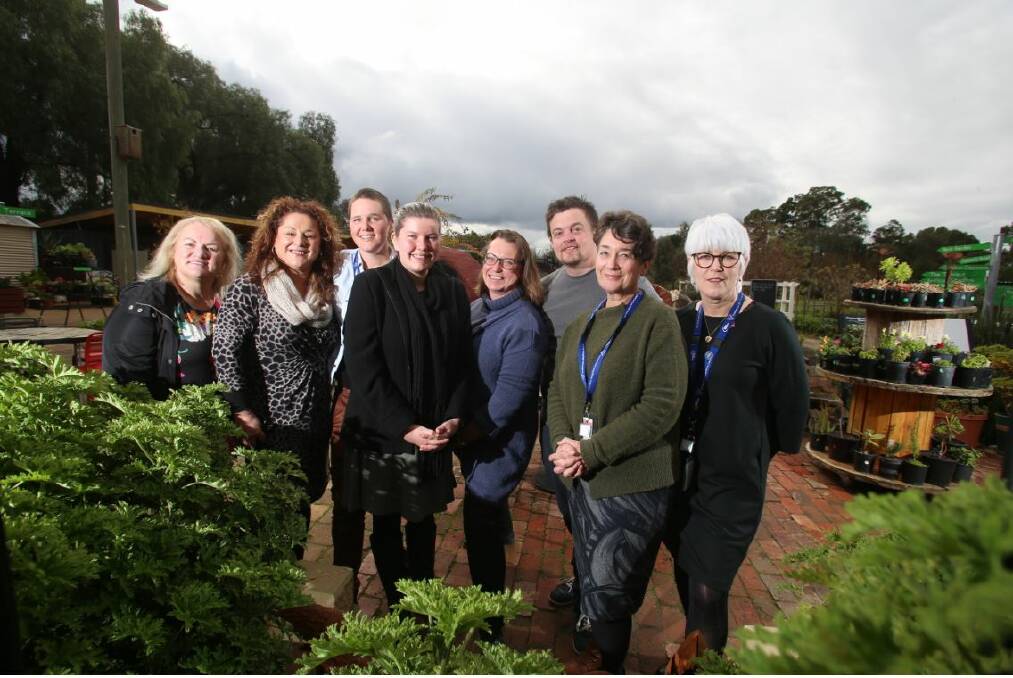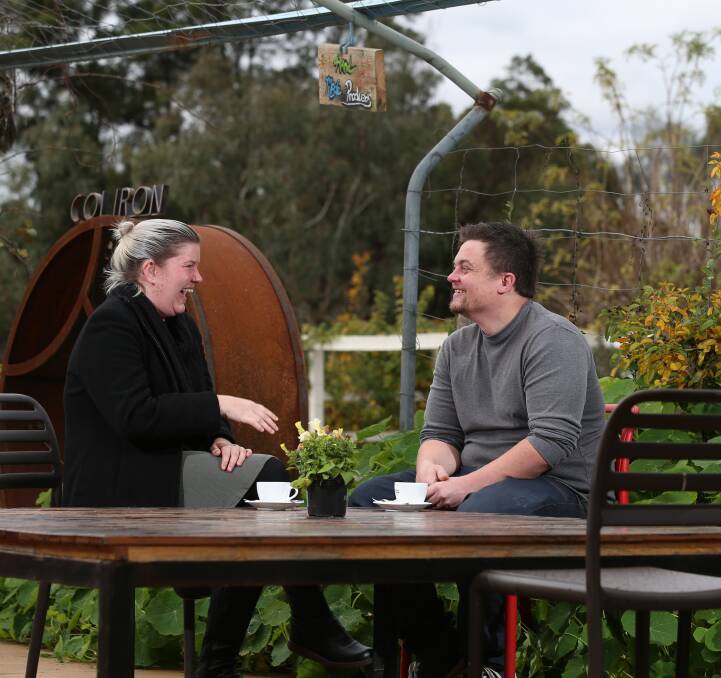A "FRACTURED" community is being united as increasingly isolated people who are deaf and hard of hearing take action.
Subscribe now for unlimited access.
$0/
(min cost $0)
or signup to continue reading
A deaf hub is being set up at PepperGreen Farm to help unite the community, and to help it connect with those who hear, Bendigo Health deaf access project worker Elise Stewart said.
"We used to be able to walk down the street and someone would know sign language, and people would be aware of deaf people - how to communicate with them and not freak out," she said.
"In the last 10 years, people who are not deaf-aware have lost the understanding even of the (Auslan) alphabet.
"You can ask people who are 40-years-old or upwards. People used to be taught that alphabet and knew how to sign things like 'hi, how are you?'. They also probably knew a deaf person.
"Now, it's almost like we are in a ghost town."
Deaf people do not want to be segregated from the wider community, Ms Stewart said.
"At the moment, in the deaf community, we don't have a place to call home or have a support network in one place," she said.
"PepperGreen Farm has this beautiful space where we can all have coffee, food, enjoy the fire and work in the garden.
"This is really the first place to open its arms and doors up to help us be part of the world - not their world, but the world."

Bendigo's deaf community was once very active, but has become more fragmented over time, hub organiser Joel McNeill said.
The new hub means the world to him.
"It's something to look forward to, to socialise and break through the barriers that are there," Mr McNeill said.
Organisers are still reaching out to people as they kick-start the community again. They already know of 40 people who are deaf or hard of hearing around Bendigo, Ms Stewart said.
"But these are people that we know of. Some people don't have access to the internet - especially older people - so they don't see these things come up," she.
Isolation is not just an issue around town, Bendigo Health deaf access coordinator Kim Muller said.
"Last year we had an event in Shepparton and one lady came to that who had not seen another deaf person for seven years," she said.
"Her family was on a farm and her family did not have Auslan language. So you can imagine the isolation."
PepperGreen Farm is well-versed in grappling with that kind of isolation, employment enterprises team leader Michelle Taylor said.
"We probably understand it better than anyone else. We have 82 supported employees working here. They mostly have mental or psychiatric disabilities and their isolation can be very similar," she said.
"We have people here who have not been able to communicate with their peers, get bullied, get ignored.
"That's part of how easy a fit it (the Deaf Hub) will be here (at PepperGreen Farm)."
How Bendigo can better embrace people who are deaf or hard of hearing
Deaf Hub organiser Grace Rourke says finding a job is her biggest barrier.
When she applies for work there is always a point when potential employers try to call her.
She can communicate with them through the National Relay Service, a group that helps people who are deaf, hard of hearing or have speech impediments to make and receive phone calls.
"That's when they realise I am deaf. They will normally do the interview but they don't hire me, perhaps because there's this idea that deaf people can't do anything," Ms Rourke said.
There are also challenges accessing mental health services in Bendigo - a critical service for many deaf people, including those grappling with isolation - she said.
One organisation turned Ms Rourke away because it did not have the staff to communicate with her.
"I offered to supply an interpreter using my National Disability Insurance Scheme funding and they still couldn't understand how they could work with me," she said.
More stories:
Ms Muller said many businesses do not know how easy it is to bring an Auslan interpreter in.
"People don't understand that Auslan is a language like any other. They think of it as disability support," she said.
"They might bring in interpreters for Karen speakers, Chinese speakers or any other language but say 'Auslan? I don't know how to book that'.
"It's always through the same provider they use for any other languages."
Ms Muller said Bendigo Health could provide training and advice to organisations about how they can work with Auslan interpreters, including how to overcome common problems deaf people can have with trust and privacy.
"There can be this attitude (among organisations) that 'I'm supplying the interpreter, so you should take what I give you', and that the deaf person should be grateful for that," Ms Muller said.
Plans in pipeline
Members of the deaf community will gather this Saturday from 10am at PepperGreen Farm with more events planned, including two workshops.
The hub is currently made possible through a partnership between the Deaf and Hard of Hearing community, PepperGreen Farm's operator Access Australia Group and Bendigo Health.

Bendigo Health hopes to ease back as time goes on, carer support services manager Rose Miles said.
"We really love being a partner but we recognise that as time goes by the deaf community needs to take our entire role. We want the hub to be self-sustainable and self-determining. That's the way it needs to be."
Have you signed up to the Bendigo Advertiser's daily newsletter and breaking news emails? You can register below and make sure you are up to date with everything that's happening in central Victoria.


